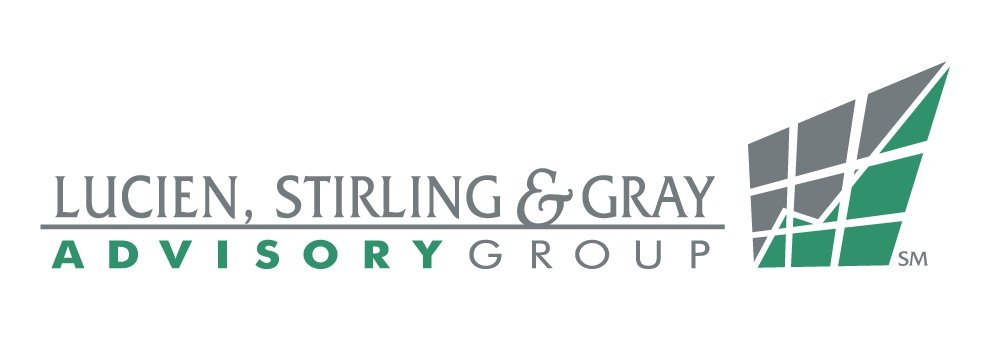President’s Message
Article By Thomas Twombly, President
Artwork by Daisy Lopez, Staff Accountant
If the second year of this pandemic taught us anything, it’s that the pace of disruption in our world isn’t slowing down any time soon. On the other hand, neither is human ingenuity, creativity, and drive. That’s an important point for all long-term investors to recognize and remember.
But it is not easy to keep a faithful, patient, and disciplined eye on the far horizon when all around you seems so tumultuous. With the kind of economic volatility, medical uncertainty, and socio-political complexity we’ve all been struggling through in the last 24 months, and now with the financial and investment ambiguity we are suddenly facing due to an inflationary spike that outstrips anything we have seen in 40 years, it takes deliberate effort – especially when headlines keep provoking reactivity.
Fatigue becomes a very real danger to well-laid financial and investment plans in environments like this. It can make us fearful or angry, it can provoke us to react impetuously, or it can tempt us to bury our heads under the covers and hope the challenges will go away if we just ignore them. And truth is, you might not be human if you haven’t experienced a serious sense of that fatigue at some point or other over the last couple of years. I know I have – in many different corners of my life.
How then to inoculate oneself? Where does one get a booster shot of courage and determination to just adapt and handle whatever happens as we move forward; to continue to act with purpose and discipline on the important long-range plans we’ve laid out, and not to waste crucial time, energy, and resources obsessing over the complete unpredictability of what new surprise might or might not happen next?
For me, it’s always about stepping back and taking in a broader perspective. It helps immensely to look backwards over history – both my own arguably narrow but instructive professional experience, as well as the longer-range financial history that surrounds and predates me – to remind myself of the important investment lessons I’ve learned and bolster the convictions I’ve developed, so I can navigate an unknown and unknowable future with a renewed sense of determination.
The dawn of this particular new year is an especially poignant time for me to do that. 2022 will mark Lucien, Stirling & Gray Advisory Group, Inc.’s 30th anniversary, and my 38th year in this profession – every single one of which was full of uncertainty, and some of which seemed flat out terrifying at the time. With the benefit of hindsight, all of those years brought significant long-range opportunities. But experienced in real time, all of them also brought dire headlines warning of compelling reasons to be fearful, and not to invest – not unlike the shrill voices of fear and anxiety we hear now.
To revisit just one example I’ve raised before, since 1980, which spans a timeframe just a bit longer than my career, the average annual price decline of the S&P 500 Index has been about 14%. In other words, history makes it clear that if one is going to be an investor in large capitalization U.S. stocks, one must expect that disquieting volatility will happen – all the time. It might be uncomfortable, but it’s normal. One year in five during that time frame, the index experienced declines that averaged nearly twice that. And twice during my career (2000-2002 and 2007-2009) it actually halved. Other equity asset classes can and have been even more volatile than that. It’s why people often think of equity ownership as “risky.”
Yet the S&P 500 came into 1980 at a level of 106. It just closed out 2021 at a level of 4766, an increase of almost 45x – not including dividends. With all dividends reinvested over those years, and despite all the interim volatility, the average annual total return of the S&P 500 exceeded 12% over those 42 years, and a single hypothetical investment of $100,000 made in January of 1980 and left alone would have grown to well over $8 million by the end of 2021.
Those data, and all my professional experience, underscore my conviction that the most efficient means of building lifetime and multi-generational wealth, is to stalwartly own the great businesses of the U.S. and the world as a critical component of a long-range investment portfolio. They also bolster my conviction that the biggest challenge to successful long-term equity ownership (and indeed to successful business leadership) is not intellectual, and it’s not financial. It’s temperamental. Success in the long run is based on how one reacts – or disciplines oneself not to react – to regular and inevitable setbacks, and to the disquieting emotions they provoke. Because setbacks are one thing we must always count on. In fact, they can be tremendously beneficial to investors with patient, even-handed temperaments and long-range objectives, because they provide periodic opportunities to capitalize on other people’s impatience and lack of discipline. Take a deep breath, and practice equanimity.
We know that the economy cannot consistently be forecast. More importantly, we know that markets cannot consistently be timed. The only way I know, therefore, to be reasonably sure of capturing the full long-term benefit of equity ownership, is to be determined to ride out those frequent, sometimes violent, but historically always temporary declines. Because the engine for wealth-building in equities is compounding, and the most important objective is not to interrupt that compounding unnecessarily.
Human beings have a remarkable capacity to survive – even to thrive – in the face of all kinds of challenges. This is the overriding lesson of this pandemic, and indeed of our lifetimes. And motivated teams of human beings working together to be significant, to do something special, and to create something lasting – which at their very core is what great businesses are comprised of – make up the only investable asset class that fully captures that innate ingenuity, adaptability, and drive. Don’t ever lose sight of that.
Thank you for being our clients. It is a privilege to serve you.
Thomas Twombly
President

